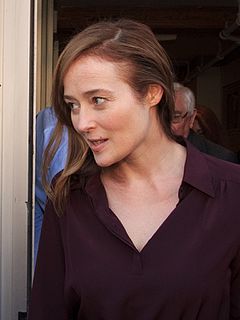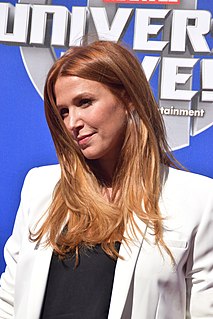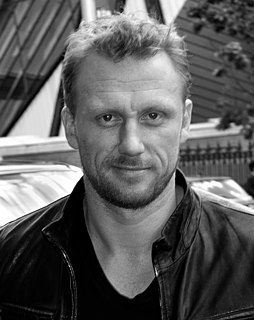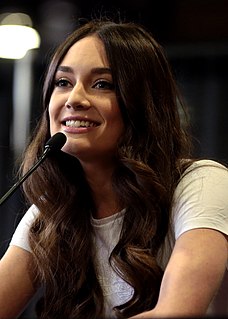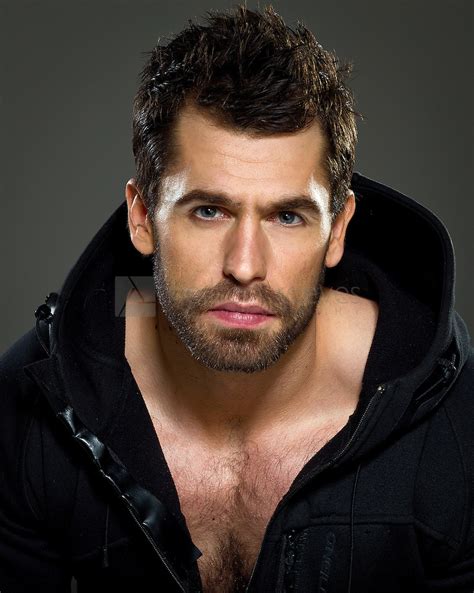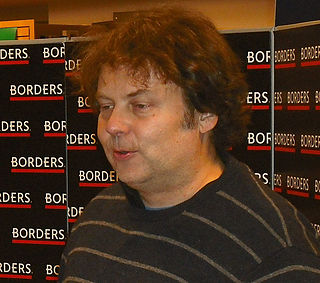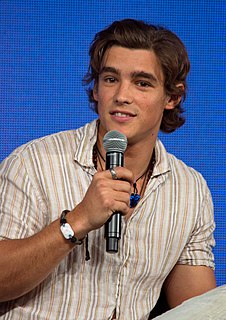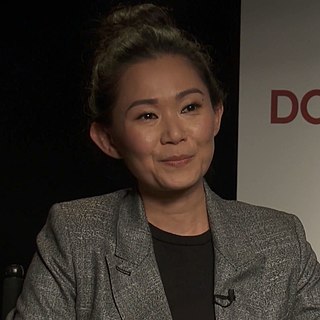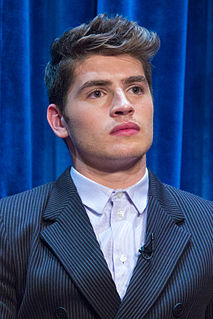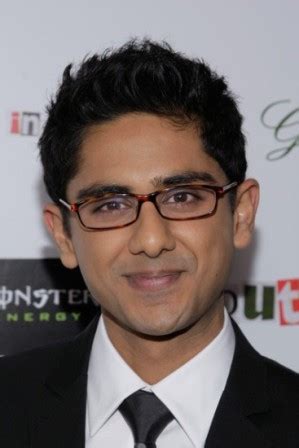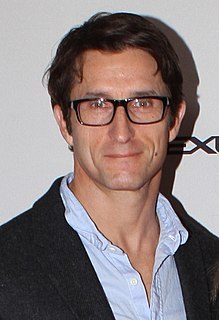A Quote by Jennifer Ehle
My natural accent is American. I chose to speak with a U.K. accent when I was about to enter the final year at drama school in London. I was going to try to find a way to stay in the U.K. after I finished college and could not imagine trying to live and get work there with an American accent.
Related Quotes
I live in L.A. so I worry my kids aren't that connected to Britain, I suppose I don't want them to become American kids. We try to get back three or four times a year. When they go to school they speak with a British-American accent but when they come home to us they go back to their British accent.
I live in LA so I worry my kids aren't that connected to Britain, I suppose I don't want them to become American kids. We try to get back three or four times a year. When they go to school they speak with a British-American accent but when they come home to us they go back to their British accent, so I can deal with that.
I guess the most interesting thing that people think is I'm English. They think that I live in England and have a British accent. When they talk to me, at first they go, "Man, you have a great American accent," and I go, "No, no, no, this is my accent. I don't do accents." And then they're really disappointed, and they try to punch me.
I didn't want to be on screen not nailing an American accent. It's an insult to an American! There are plenty of great American actors who can already do an American accent, so me, coming in and stealing their roles, the one thing I have to perfect is the accent. So for years I practiced. And we're lucky because the whole world is raised on a library of American movies. I would pretend to be Jim Carrey, and, I say Robin Williams now because he's in my mind, but those actors really inspired us to be crazy and be theatrical.
Acting for me was hard enough without having to think of the accent. And also, when I was auditioning for stuff I would walk into the room with an Australian accent, and I would do the audition in an American accent, and they would invariably say, 'Yeah, it's that good, but I can still hear the oddity coming through.'
